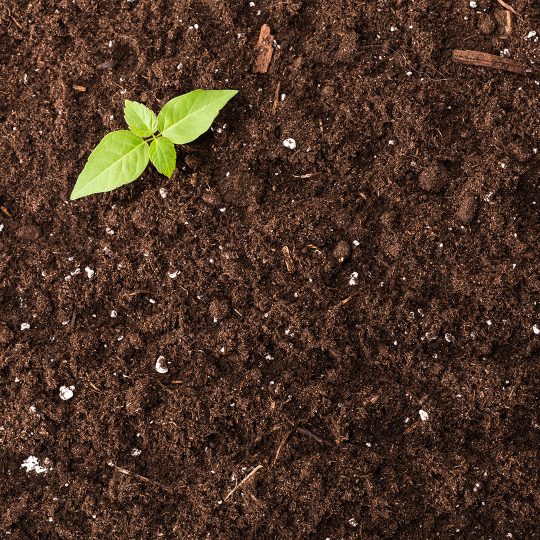The Importance of Proper Soil Care for Plants
How to Cultivate Growth in Your Yard
Posted
January 25, 2024

Healthy soil is the foundation for thriving plants. Learn about the importance of proper soil care and what you can do to improve the overall well-being of the plants in your yard.
Importance of Soil Care
Most of the plants in your yard grow in soil. From the tallest tree to the smallest flower, they’re rooted in the ground and rely on the surrounding soil for survival. Here are some of the main reasons why proper soil care is so important.
- Enrichment. Plants rely on a variety of nutrients to grow and flourish. Soil serves as the primary source of these nutrients, making it imperative to ensure that the soil is rich and well-balanced. Nitrogen, phosphorus, potassium, and various micronutrients are essential for plant growth. Regularly testing and amending the soil with organic matter, compost, and fertilizers can help maintain optimal nutrient levels, promoting healthy plant development.
- pH Levels. Different plants thrive in different pH ranges. Maintaining the appropriate pH for your specific plants is crucial. Regular soil testing allows you to monitor and adjust the pH as needed, creating an optimal environment for nutrient uptake and overall plant health.
- Structure and Aeration. The structure of the soil significantly influences root growth and their ability to access nutrients and water. Compacted or poorly aerated soil can hinder root development and lead to stunted growth. Implementing practices such as regular tilling, mulching, and incorporating organic matter helps improve soil structure and enhances aeration. This helps plant roots penetrate the soil easily, fostering healthier and more robust growth.
- Water Retention and Drainage. Balancing water retention and drainage is a delicate dance that directly impacts plant health. Soil that retains too much water can lead to root rot and other water-related issues. Soil with poor water retention may result in dehydration and stressed plants. Adding organic matter, such as compost, helps improve water retention in sandy soils. Incorporating sand in your soil can help improve drainage in clay-based soils. Striking the right balance ensures that plants receive adequate hydration without becoming waterlogged.
- Disease Prevention. Healthy soil acts as a natural defense against plant diseases. Soilborne pathogens can compromise the well-being of your plants, leading to infections and reduced yields. By practicing proper soil care, you create an environment that minimizes the risk of disease, promoting the longevity and productivity of your plants.
Professional Soil Care and Testing
Whether you’re concerned about the overall quality of your soil or you start to notice poor plant health, there are ways to help. Start by testing your soil to see where it stands. Then focus on adding nutrients, improving structure, aerating, or treating any disease. Contact the specialists at Elite Tree Care for more specific ways to improve the soil in your yard to help ensure plant health and wellness.